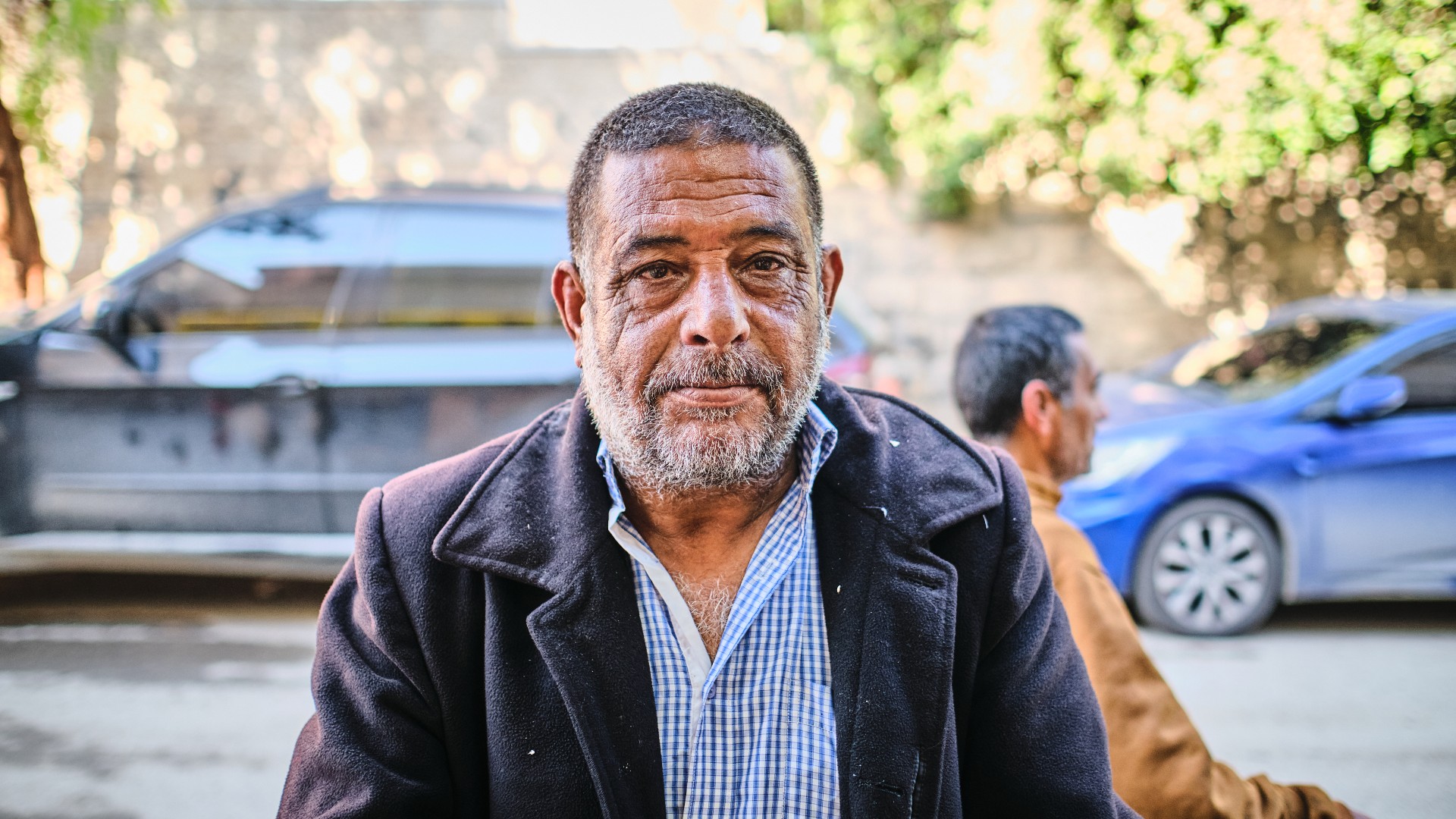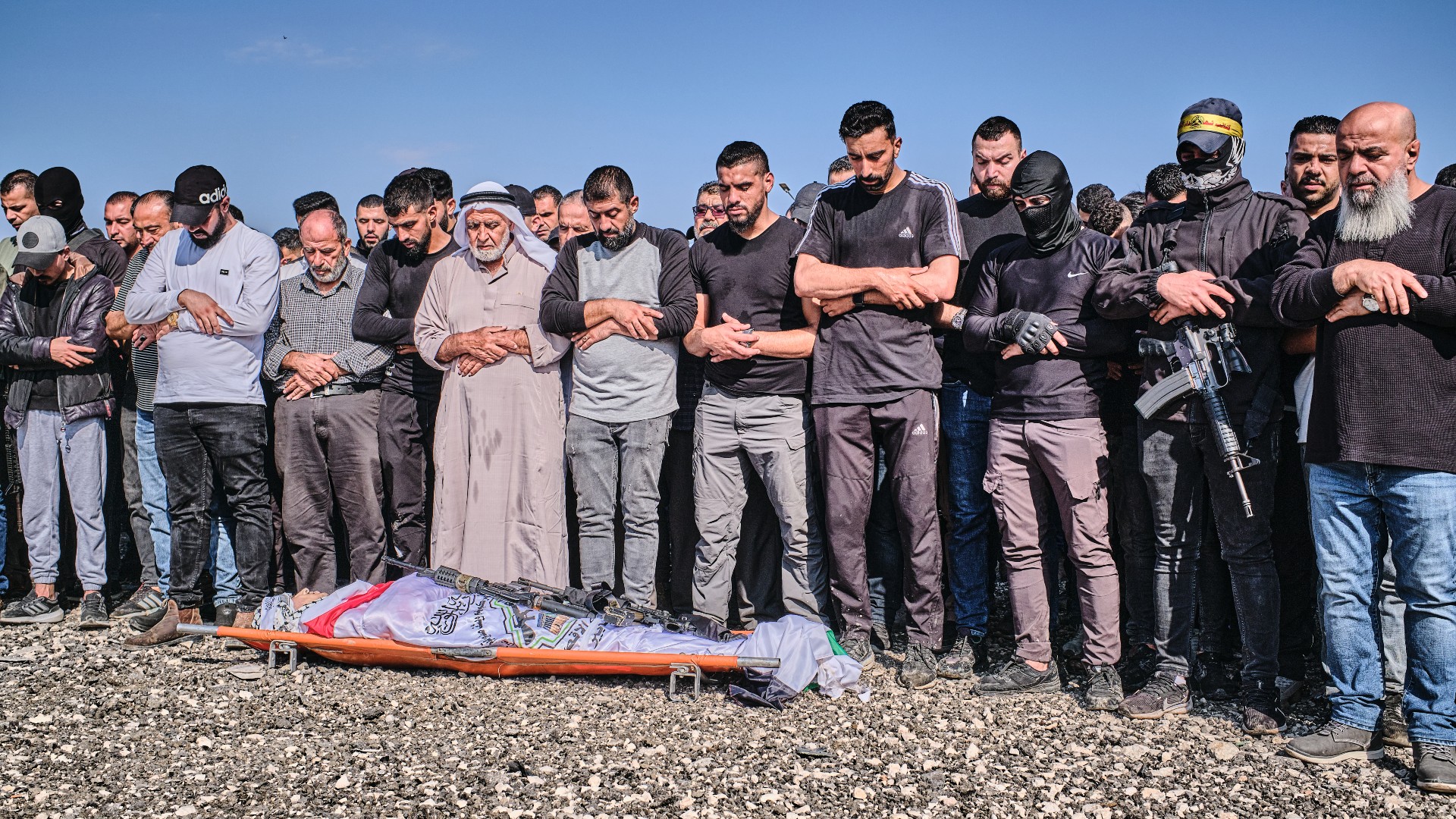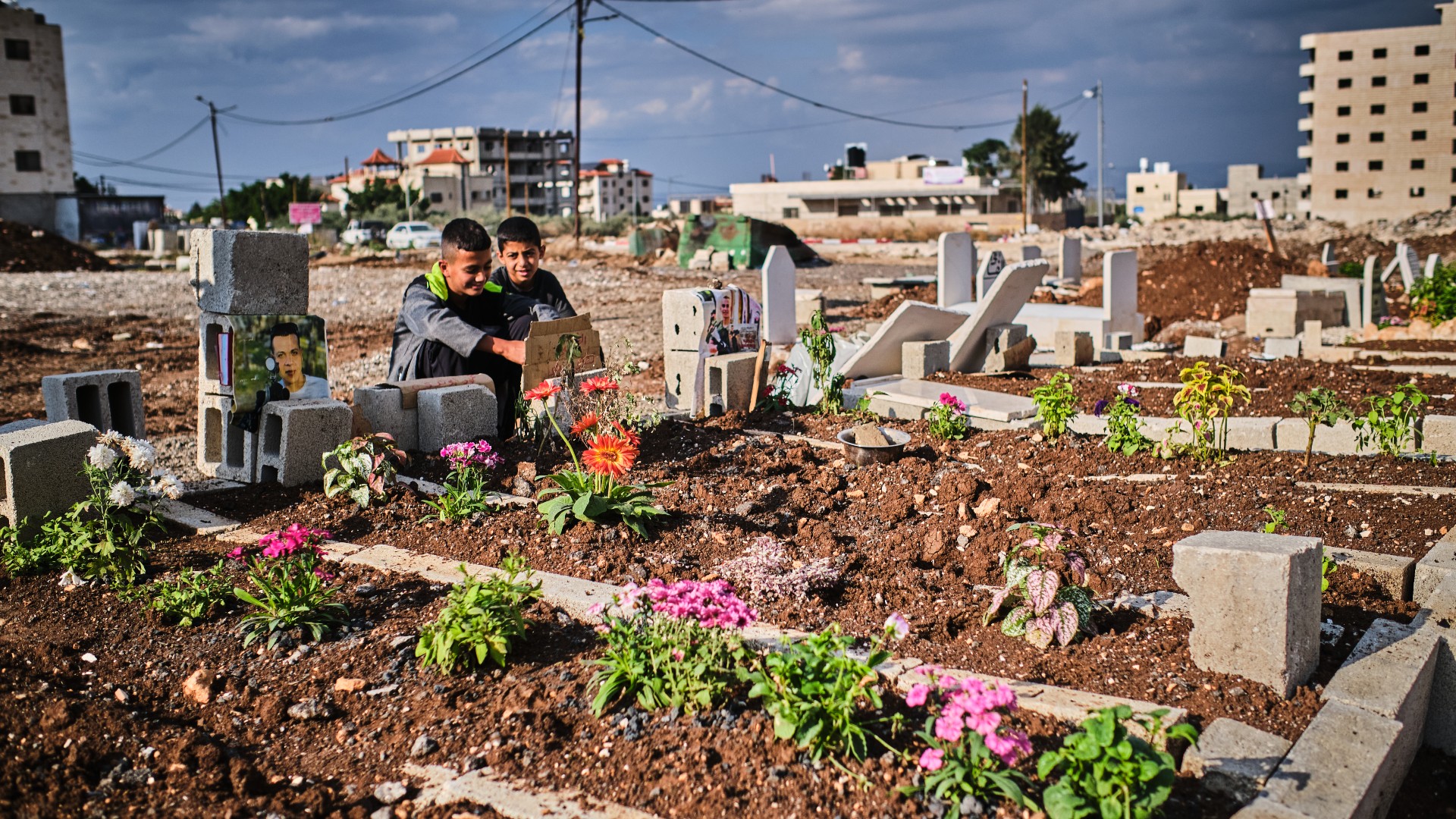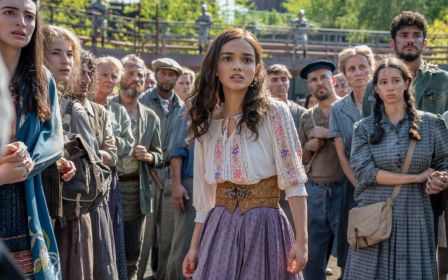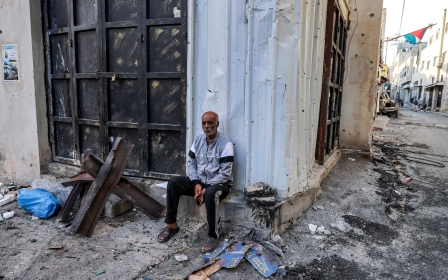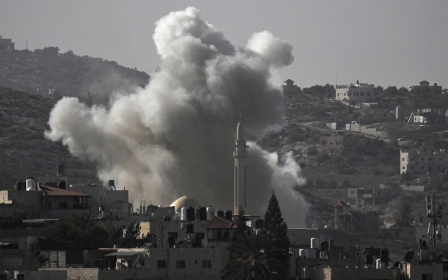Israel-Palestine war: Miles from Gaza, fresh graves are dug for Palestinians killed in Jenin
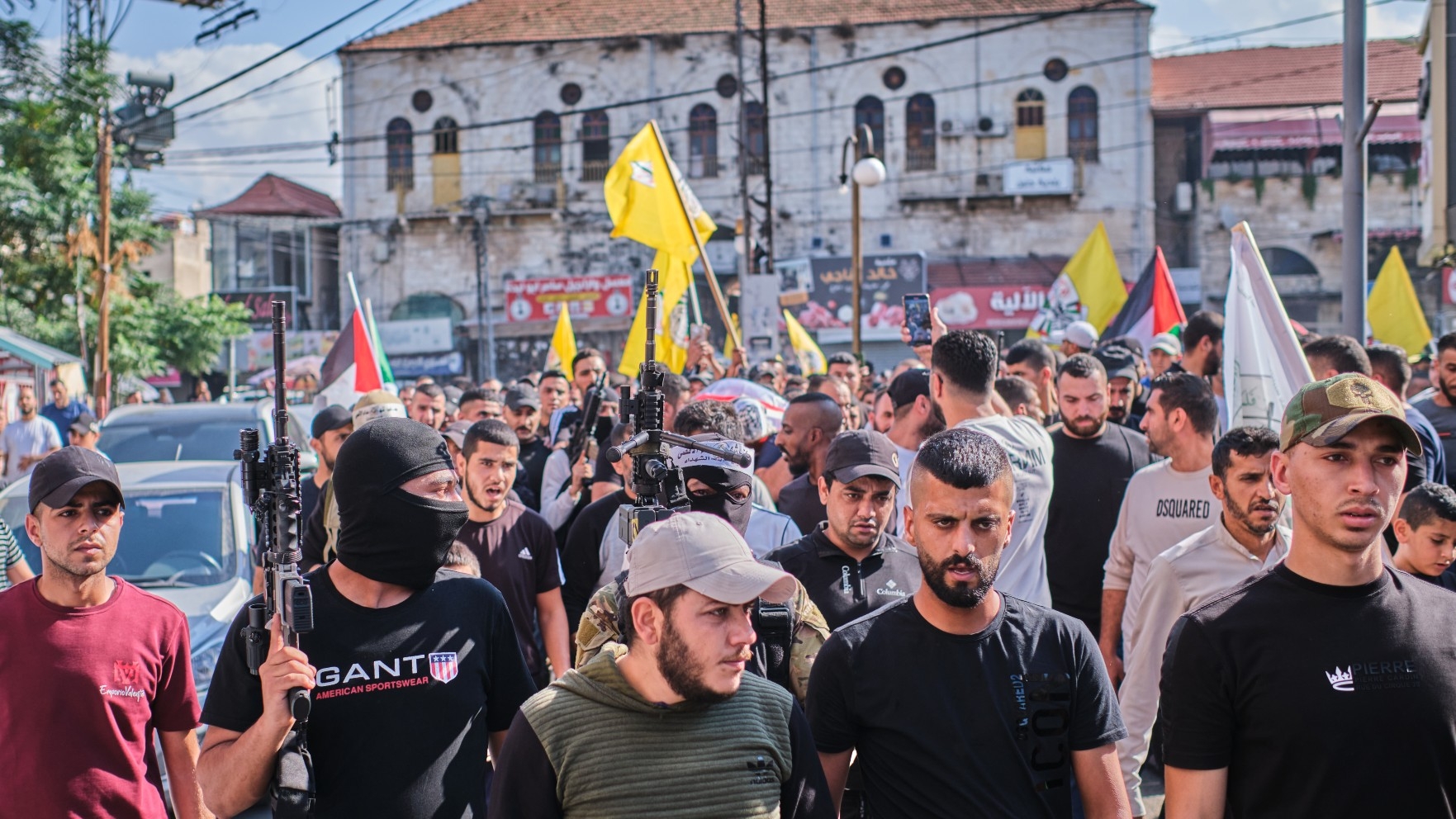
For more than 40 years, Esam Nasharti has washed the bodies of dead Palestinians before they are finally laid to rest at the ever-growing graveyards in the Jenin refugee camp.
Cleaning the corpse is one of the most solemn rituals of Islam, with instructions clearly set out by Sunni legal schools.
After bathing the body in warm water, it is placed in a simple shroud. The work has to be carried out expeditiously in preparation for burial the same day.
As Middle East Eye met Nasharti at 9am outside Jenin's Khalil Suleiman hospital, named after a doctor killed by Israeli forces during the Second Intifada, he told us that the family of a recently killed fighter, 21-year-old Jamal Mashaqa, had phoned him four hours earlier about his death.
Nasharti was still at work as a night guard at a construction site, and this was his first call for some time.
New MEE newsletter: Jerusalem Dispatch
Sign up to get the latest insights and analysis on Israel-Palestine, alongside Turkey Unpacked and other MEE newsletters
Since 7 October, when Palestinian fighters launched a multi-pronged cross-border attack on southern Israel, killing some 1,200 people and capturing 240 others, the Israeli government has stepped up what it calls counter-terrorism operations across the occupied West Bank alongside its relentless offensive in Gaza.
According to a tally by Middle East Eye, more than 200 Palestinians have been killed by Israeli forces or settlers in the West Bank since the war on Gaza broke out.
Restive Jenin has become the site of near-daily raids with at least 49 Palestinians killed since 7 October. All but one of them died instantly.
Mashaqa was the exception. He was wounded in an air strike a week earlier but succumbed to his injuries on 18 November.
"The Prophet, peace be upon him, said that everyone killed during jihad is instantly forgiven and is instantly purified," Nasharti told MEE.
Follow Middle East Eye's live coverage of the Israel-Palestine war
Once the ritual washing was complete, Mashaqa's body was brought out of the hospital on an orange stretcher, carried by six bearers. His face, wrapped in a keffiyeh, was visible. He was draped in the white flag of the Al-Aqsa Martyrs Brigades, with an M16 assault rifle across his chest.
Around 500 mourners were in attendance. They waved the yellow flags of Fatah, the white flags of the Al-Aqsa Martyrs Brigades and the iconic Palestinian flag.
They chanted the dead man's name and the words: "In our blood, in our soul we are with you shaheed [martyr]," adding: "We will follow your path."
They then sent words of comfort to Mashaqa's mother.
For the mourners assembled that day for the funeral, Mashaqa was a symbol of Palestinian national unity and an example for others to follow as violence surges in the West Bank.
'Israeli raids won't break us'
Attending funerals has become a full-time occupation in the northern Palestinian town of Jenin, close to the Israeli border and in normal times a 90-minute journey from Tel Aviv.
The funeral procession headed to Jenin's commercial centre where shops were closed as a mark of respect.
It turned round at the public library at the entrance to Jenin's old city and passed an old Roman Catholic Church as it advanced along Abu Bakr Street towards the refugee camp.
The destruction inflicted by constant Israeli assault was all around. Bullet marks scarred the walls.
'We in Jenin respect all people regardless of race, colour or religion. We are not raising the white flag. We will never do that'
- Iyad Azmi, a greengrocer whose brother was killed
The procession passed the place where the Jenin horse, the symbol of the camp constructed from pieces of wrecked cars and a broken ambulance panel during the Second Intifada, stood before it was broken by Israeli forces in a recent assault.
The mourners crossed a roundabout at the entrance to the refugee camp. In an act of petty malice, Israeli bulldozers have turned much of the road through the camp into rubble.
Abu Zaid, a dentist, told MEE: "Our message to the world is only freedom and human rights."
The procession passed the old cemetery, where space for new graves recently ran out.
The new cemetery is a short walk from the spot where journalist Shireen Abu Akleh was killed by an Israeli sniper last year.
Three weeks ago, her memorial was bulldozed and desecrated.
On arrival at the new cemetery, the mourners paused, formed a line, with masked gunmen standing alongside men in civilian clothes, and laid the body down.
The imam led the final funeral prayer. When he finished, mourners came forward to touch the body.
As Mashaqa was laid to rest in the grave, fighters from the Al-Aqsa Martyrs Brigade fired in the air in a last salute.
Nearby were the fresh graves of a 12-year-old boy and a 14-year-old. The cemetery was filling up so fast that many lacked gravestones.
Iyad Azmi, a greengrocer, was mourning his brother Mohammed, who had been killed in an Israeli air strike two days earlier.
"We in Jenin respect all people regardless of race, colour or religion. We are not raising the white flag. We will never do that," he told MEE.
"The Israelis believe that raid after raid, destroying houses and killing people, will break us and make us surrender. But that will never happen. We will liberate our land."
Middle East Eye delivers independent and unrivalled coverage and analysis of the Middle East, North Africa and beyond. To learn more about republishing this content and the associated fees, please fill out this form. More about MEE can be found here.


